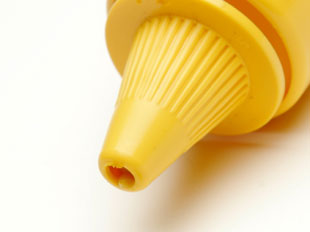Extra Mustard, Please
 Mount Horeb, Wisconsin (home of the National Mustard Museum) honors the low–calorie spread’s tastiness — with spicy, tangy, and sweet varieties — but its health benefits should also be applauded. Mustard seeds contain magnesium, iron, zinc, calcium, niacin, and fiber. So, as this obscure observance is celebrated, here are other healthy choices to consider:
Mount Horeb, Wisconsin (home of the National Mustard Museum) honors the low–calorie spread’s tastiness — with spicy, tangy, and sweet varieties — but its health benefits should also be applauded. Mustard seeds contain magnesium, iron, zinc, calcium, niacin, and fiber. So, as this obscure observance is celebrated, here are other healthy choices to consider:
- Pass the salsa: Tomato–based condiments are packed with lycopene, a phytochemical that protects against certain cancers and acts as an internal sunscreen to protect the skin from harmful UV rays. (Ketchup is generally high in sugar and salt, so substitute salsa or add hummus for a unique twist).
- Seek a new salad dressing: The sugar, hydrogenated oils, and calories of many salad dressings can negate your healthy leafy greens. Instead try olive oil. It’s rich in monounsaturated fats which lower bad cholesterol levels and protect against heart disease. Add different vinegars and spices to concoct your own tasty, healthy dressings.
- Hold the mayo: Mayonnaise–based dressings are usually loaded with fat. Look for organic sugar–free, preservative–free versions, blended with healthy oils. Flaxseed–oil mayo high in omega–3 fatty acids, which can lower cholesterol and have anti–inflammatory effects.
- Use portion control: Check the label for recommended serving sizes.
- Seek alternatives: Low–sodium and reduced–fat versions are available for most condiments.
- Keep it fresh: After opening, condiments only have a certain shelf life.

